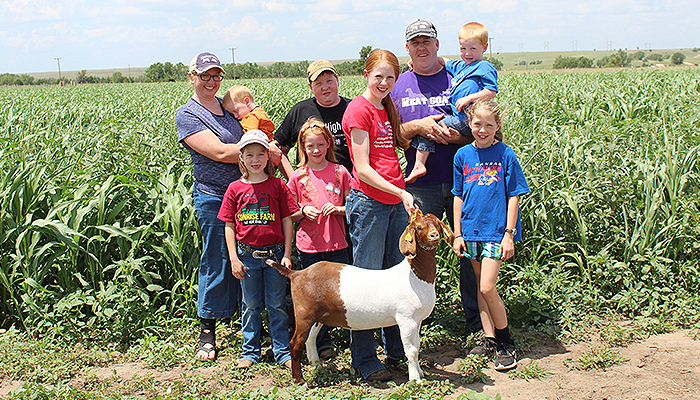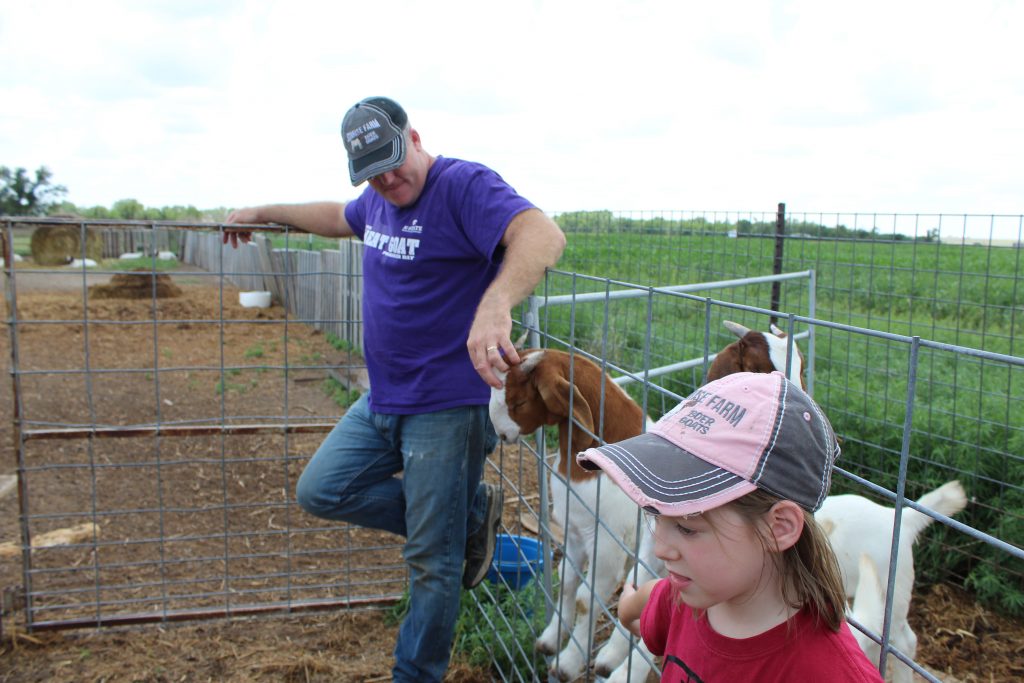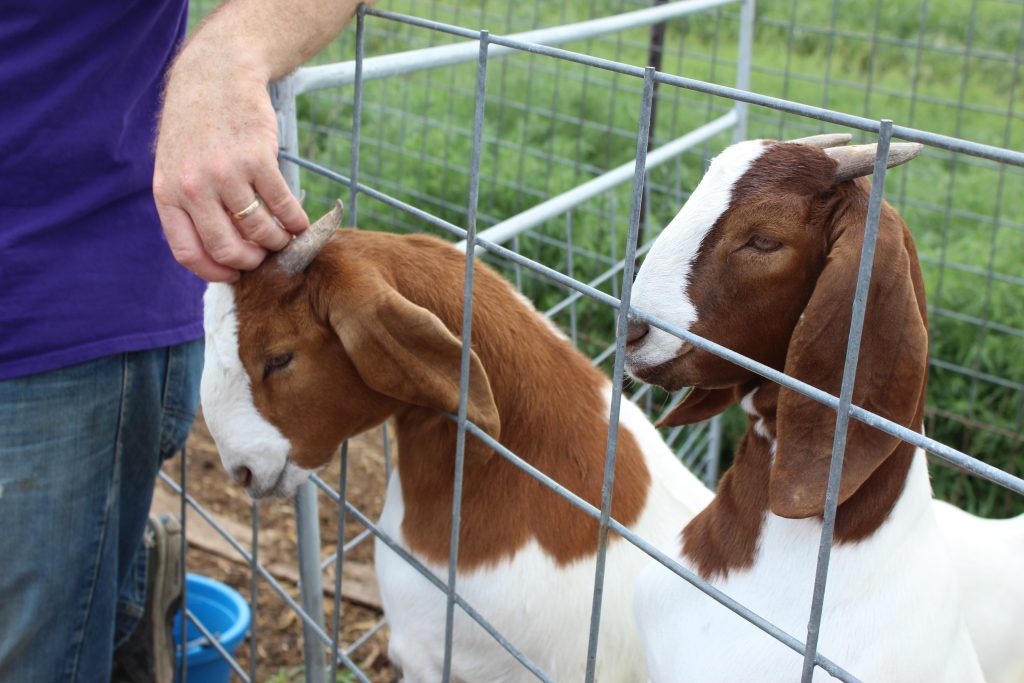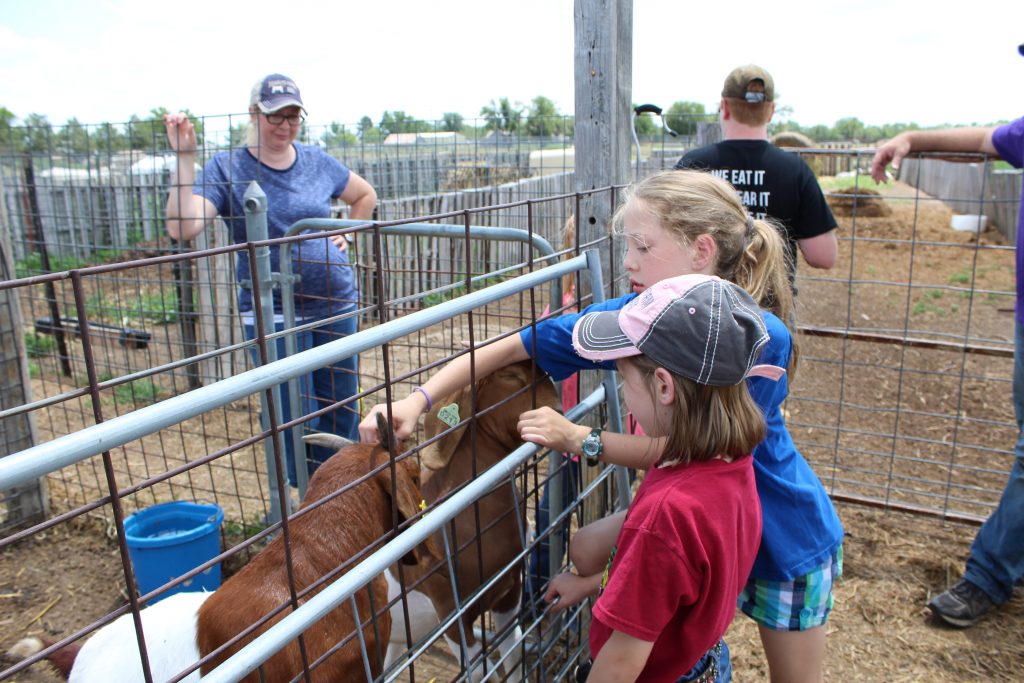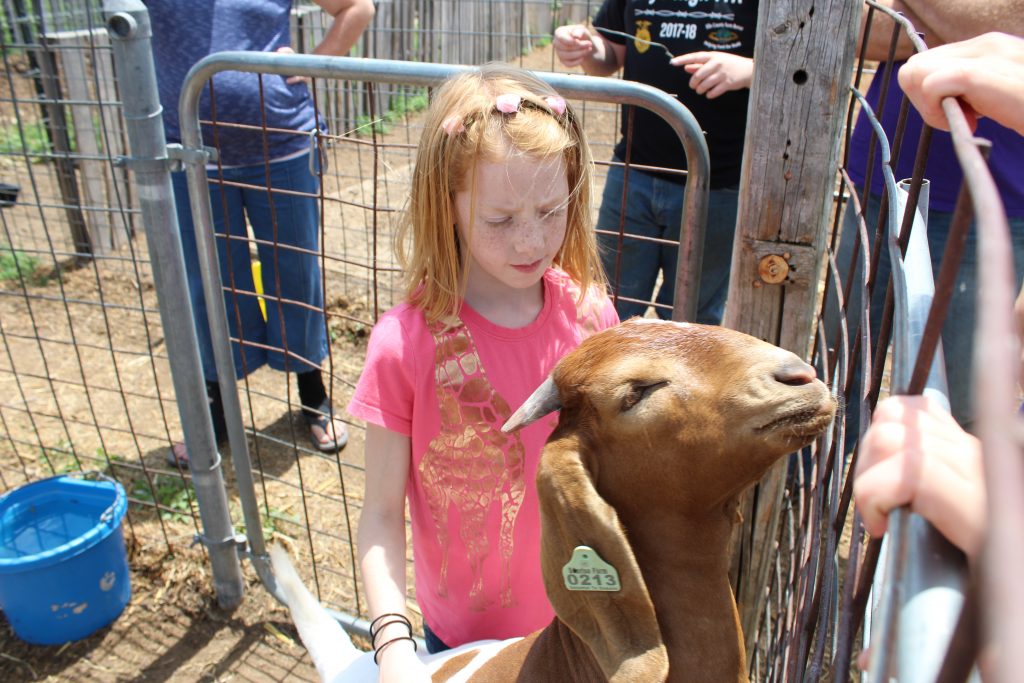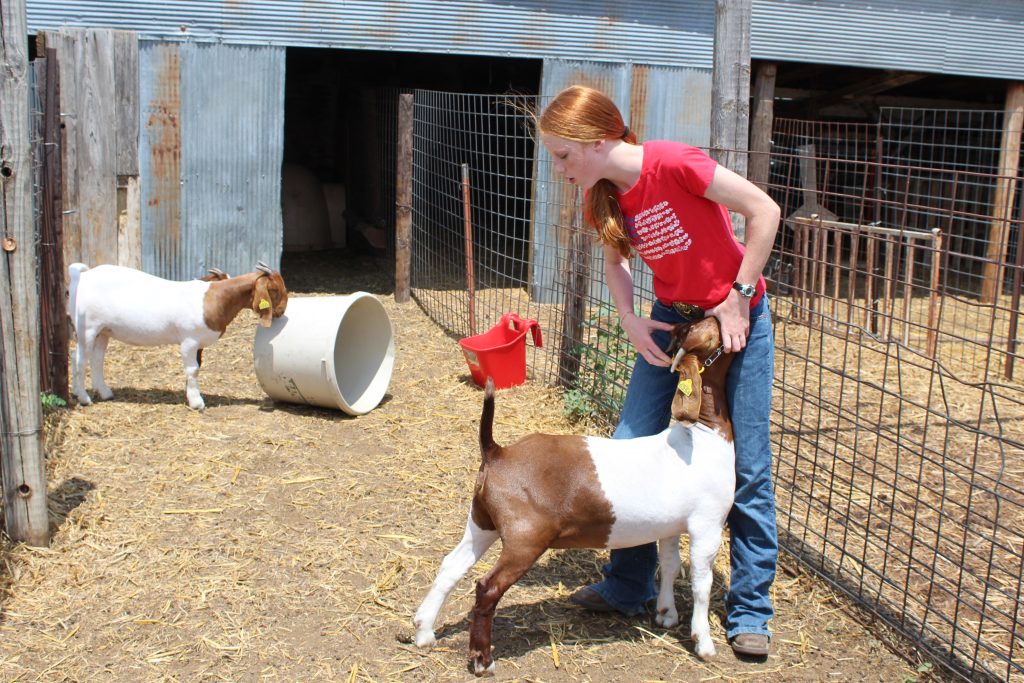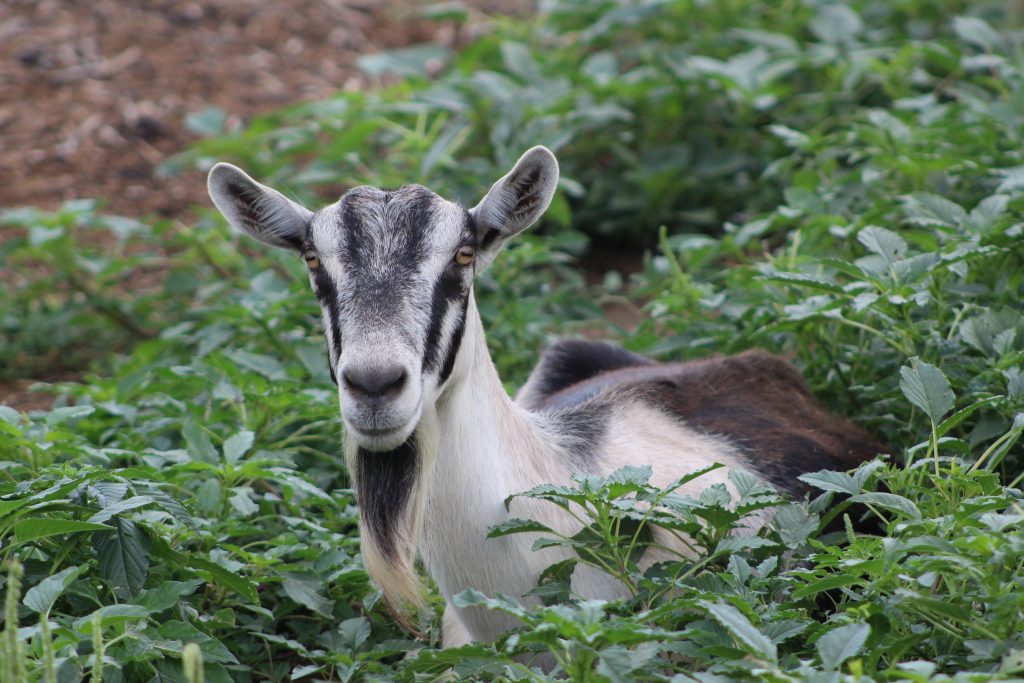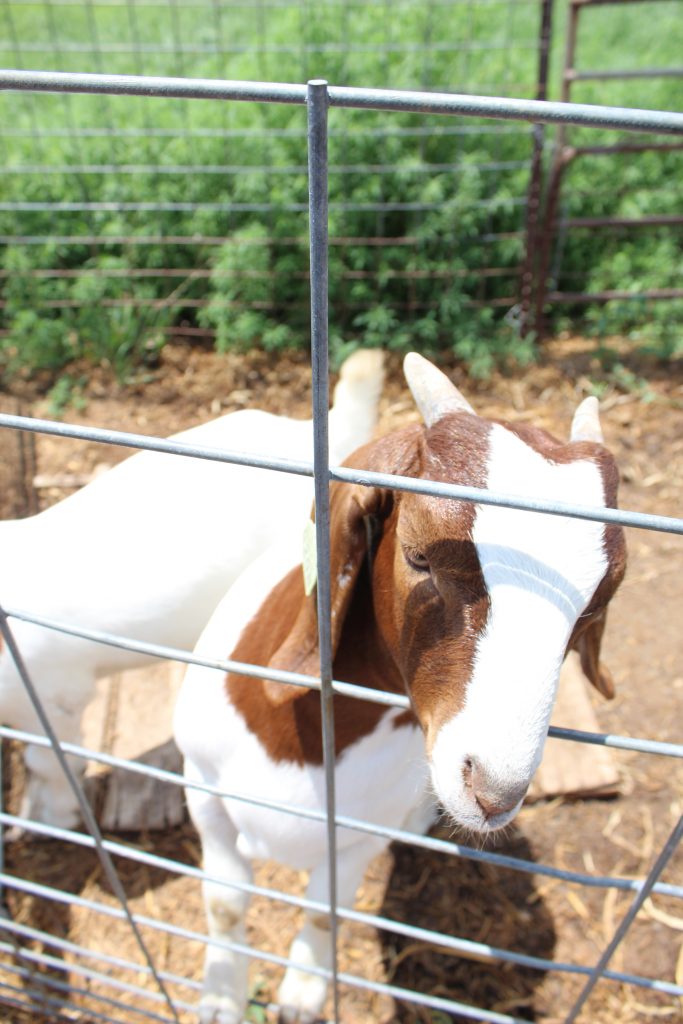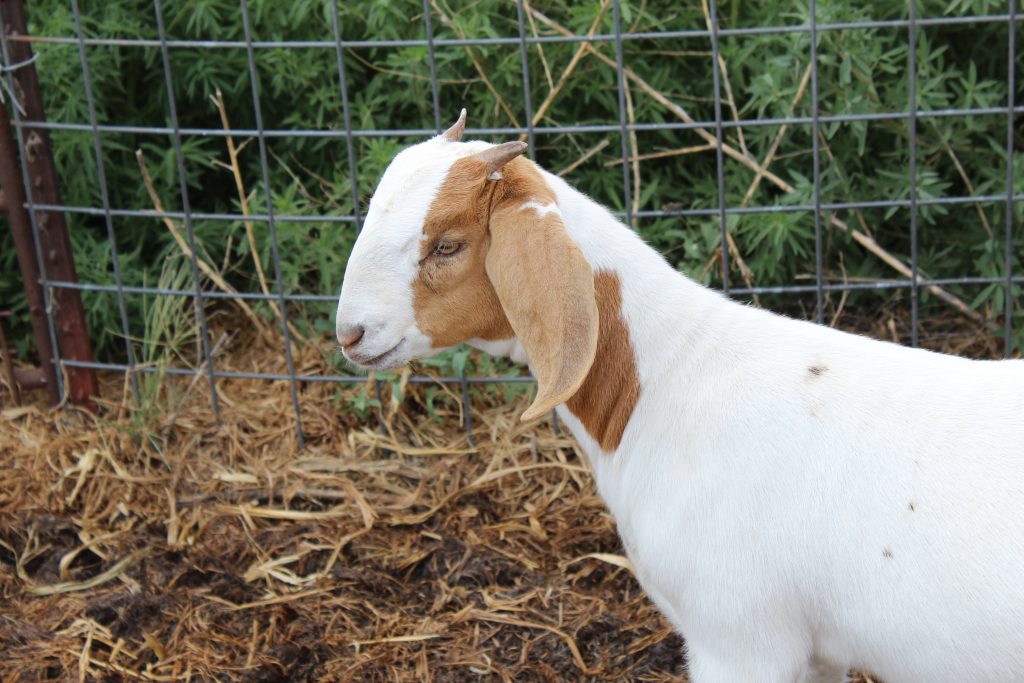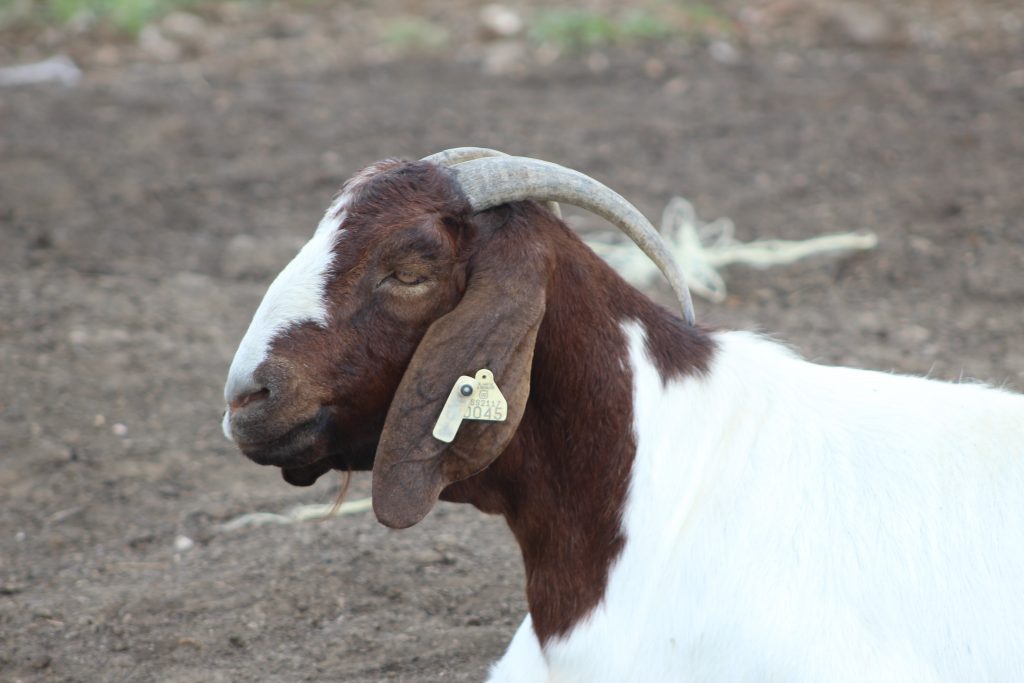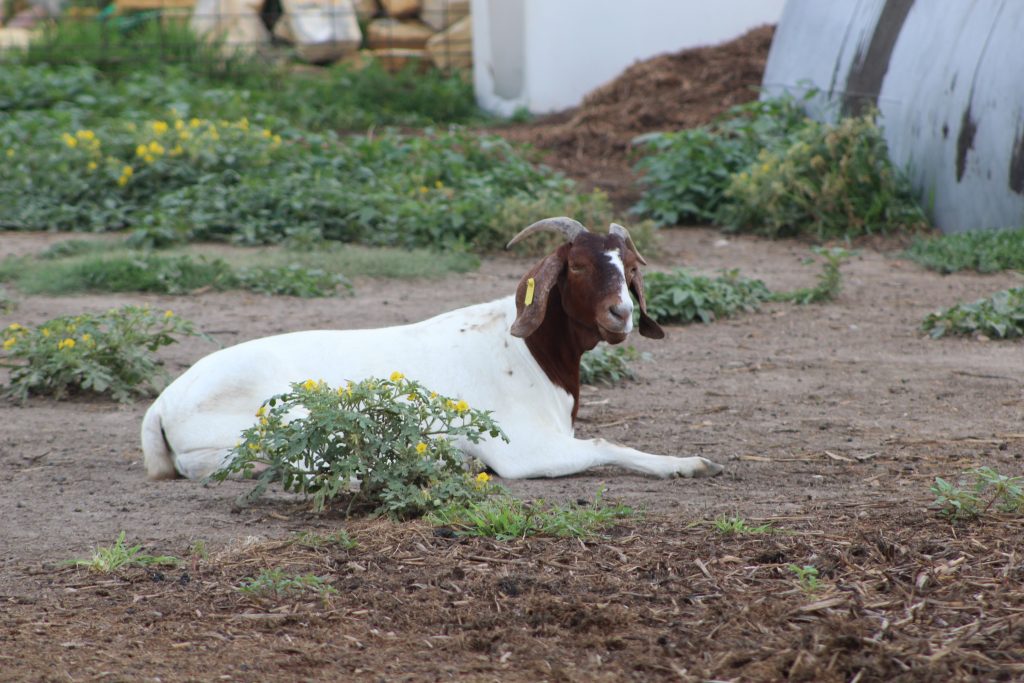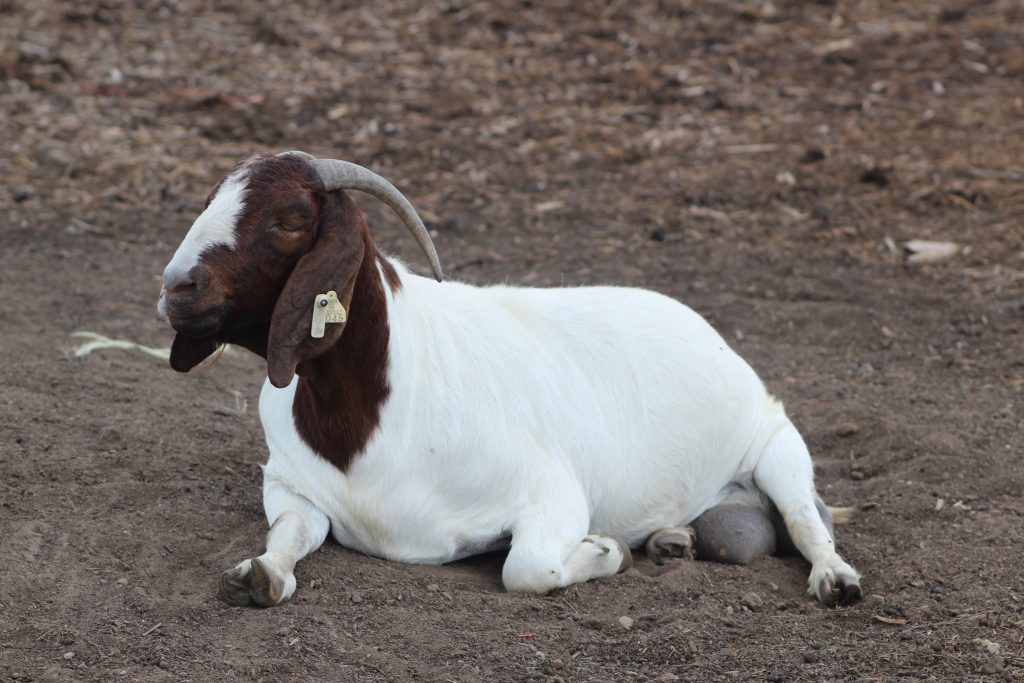
By CRISTINA JANNEY
Hays Post
PFEIFER — You could say goats are the glue that hold the Neher family together.
Jessica and Jeff Neher, along with their seven children care for more than 100 goats on their 15-acre Sonrise Farm on the edge of Pfeifer. Jeff is the youth pastor at North Oak Community Church. He and Jessica started raising goats five years ago as a project to teach the children responsibility and life science.
“This is mainly to give our kids responsibility, teach them to work, teach them to be accountable for something,” Jeff said. “For us to play sports, can you imagine us taking seven different kids to seven different teams in seven different directions? We couldn’t imagine that. This is something that our whole family can do together, and we work the goats together. When we go show, we all go together. It is something our whole family can do together.”
Jeff grew up on a dairy farm near Hutchinson, so caring for animals has always been part of his life. He wanted to give that experience to his children.
The Nehers primarily focus on show goats that are sold to 4-H youth. The family recently had a clinic for local 4-Hers at their farm.
However, the family also raises meat goats and a few milk goats.
The family originally became involved with goats for their milk. The family was drinking about a gallon of milk per day. A milk cow was too expensive, too big and too hard to handle, so the family decided to purchase a milk goat from a neighbor who had a milk goat dairy. Karli, 13, the oldest daughter, today milks and cares for the Nehers’ three milk goats.
Although you can use goat milk to make soap, lotion or cheese, the Nehers drink most of their goat milk.
The children wanted to show goats at the county fair, but the fair did not have a category for milk goats, only meat goats, so the family bought meat goats.
“It just kind of exploded from there,” Karli said.
The goats breed in the late summer and give birth in January and February to two, three and sometimes four kids (baby goats). The family sells their wethers in the spring primarily to 4-H kids. These are castrated males—the equivalent of steers—that will be raised as show goats. Does, female goats, are sold for show or to breeders to build up their herds. About half of the Nehers’ Boer goats are registered.
The more significant money is made on the show goats, and that is where the family tends to focus. Prices range widely. Goats can sell for as little as $75. Most of the Nehers’ show kids sell for $250 to $300. Bucks cost about $600. The most pricey goat they ever sold brought $1,600. However, an elite show goat from another breeder sold last fall for $56,000.
“A lot of people have the goat deal in Kansas. 4-H wise it has really exploded,” Jeff said. “It is a lot cheaper than a steer. Some of these steers are $2,000, $5,000. A lot of families just can’t afford that, and they don’t have that place to house them. And goats have great personalities. They are kid friendly, and a lot more manageable to feed and take care of.”
Boer goats, which is the breed the Nehers raise, were imported from South Africa to the U.S. in 1993. The biggest challenge in the Kansas climate is parasitic worms. Keeping up with trimming feet and pairing the goats for breeding is also time consuming, Jeff said.
The family also sells some of its herd to processing plants for their meat. Goat meat has more protein than beef and less fat than chicken.
“It is one of the most healthy meats available,” Kaleb said.
The meat is highly sought after by Middle Eastern immigrants, Hispanics and Island people, Jeff said. The U.S. is importing about 1 million pounds of goat meat per week. Most of the meat is shipped to large cities like Chicago, New York and Philadelphia where there are larger concentrations of these immigrant populations. The Nehers are getting about $2.65 to $3 a pound for their goat meat at the sale barn.
Occasionally, the Nehers sell some goat meat locally. A group of Saudi Arabian students from Fort Hays State University visited the farm, butchered and roasted some of the goat meat, sharing some of the feast with the Nehers.
Mya, 6, the youngest girl, crinkled her nose, saying she did not like the taste.
Each child in the family has goat chores. Kaleb, 15, waters and cleans water buckets. Karli, 13, milks the milk goats. Ella, 9, helps with hay. Esther, 8, and Mya, 6, help where they can, such as carrying buckets of water. Joshua is 4 and the Tucker, the youngest, is not quite 2. All three of the oldest children along with Jessica help deliver kids. Goats need more help delivering than a cow, Jessica explained. Ella proudly acknowledged she helped deliver her first kids this winter.
“Boer goats have to be watched closely and often need help when they are kidding,” Jessica said of the birthing process. “That requires a lot of our time. Everybody has to pitch in and be patient. Little kids participate in that they have to be patient with everything. Dinner might not happen, and grandma might be here when they wake up to take care of them because the rest of us are out taking care of babies being born. Kidding season requires flexibility from all of us, and we learn so much, don’t we?”
To learn more about Sonrise Farm, follow them on Facebook or email Jeff at [email protected].
